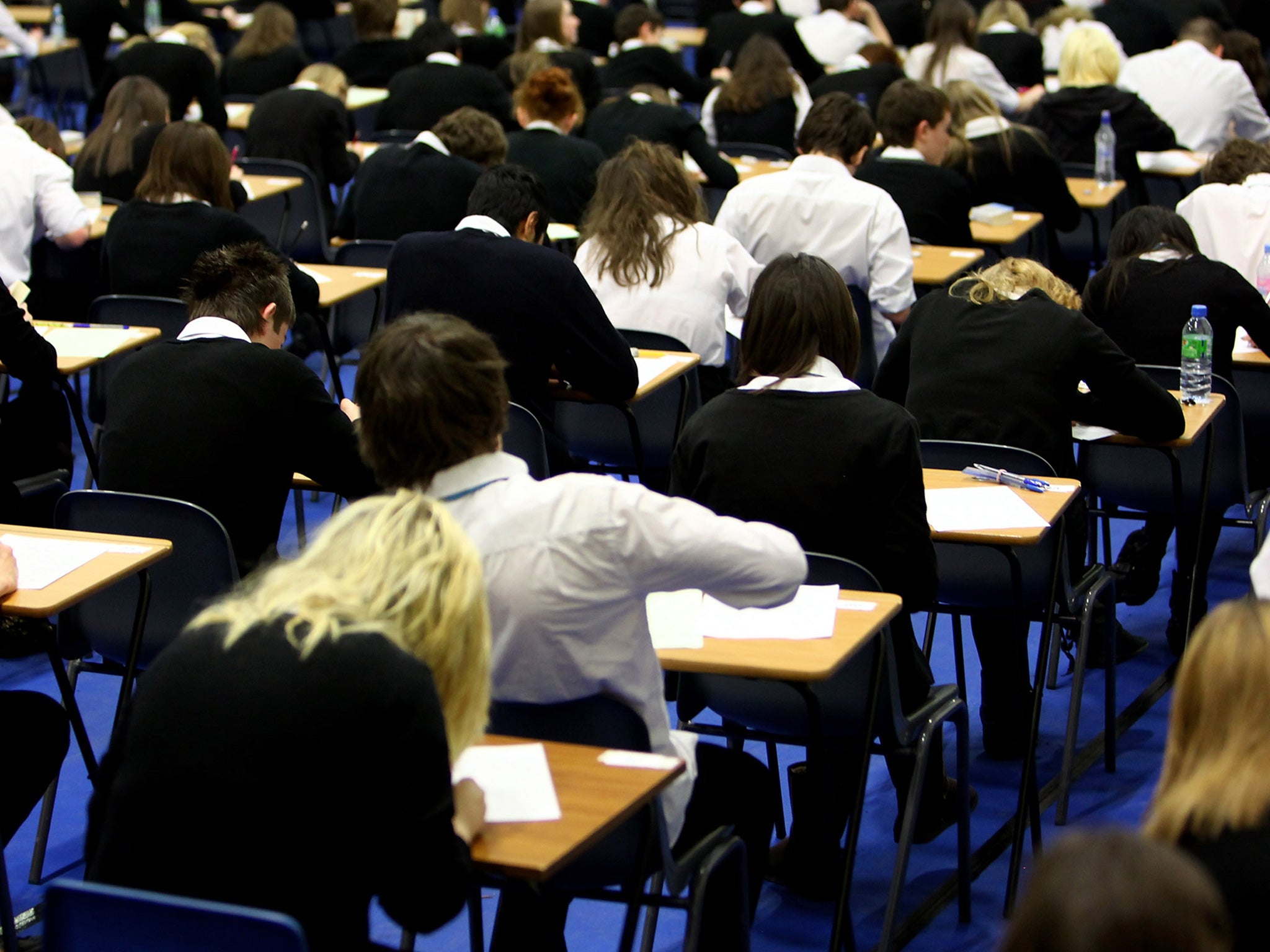Growing number of private school pupils ditch A-levels in favour of alternatives
Numbers opting for the International Baccalaureate and BTECs have risen

Your support helps us to tell the story
From reproductive rights to climate change to Big Tech, The Independent is on the ground when the story is developing. Whether it's investigating the financials of Elon Musk's pro-Trump PAC or producing our latest documentary, 'The A Word', which shines a light on the American women fighting for reproductive rights, we know how important it is to parse out the facts from the messaging.
At such a critical moment in US history, we need reporters on the ground. Your donation allows us to keep sending journalists to speak to both sides of the story.
The Independent is trusted by Americans across the entire political spectrum. And unlike many other quality news outlets, we choose not to lock Americans out of our reporting and analysis with paywalls. We believe quality journalism should be available to everyone, paid for by those who can afford it.
Your support makes all the difference.A growing number of private pupils are taking alternatives to A-levels, independent school results show today.
The figures show rises in numbers opting for the International Baccalaureate (IB), with its broader range of subjects, the Pre U, devised when it was felt by independent school heads that A-levels lacked rigour, and vocational qualifications such as BTEC.
The figures show a 31 per cent rise in BTEC to nearly 700 pupils, a 10 per cent increase in the Pre U to 2,348 entries and a seven per cent boost to IB to 2,045 pupils.
One headmaster told, in a sideswipe at political interference, how his school was offering the IB because it was devised by “professional educators”. James Priory, of the independent Portsmouth Grammar School, which offers pupils a choice between the IB and A-levels, said: “The appeal of choosing IB was in part because an increasing number of pupils were reluctant to drop subjects following GCSE.
“At 16 years old, many are unsure of what their future direction will be and the IB helps them to keep more doors open and develop a fuller range of skills. The greater breadth of the IB is particularly important in encouraging pupils to sustain their study of modern foreign languages, maths or science post-16.” The new rigorous linear A-levels would see more pupils taking just three options.
Echoing claims from other headteachers that one of the strengths of rival qualifications is that they are less susceptible to political pressures than A-levels, he added: “IB has also provided some stability within the sixth form provision in times of transition: it is reassuring for pupils and parents to know that changes will be brought through by professional educators.
“Almost 100 IB diploma pupils have now passed through our sixth form. The feedback we receive from them is that they feel far better equipped for independent study at university.”
However, Barnaby Lenon, former head of Harrow and chairman of the Independent Schools Council, said the growth was not a criticism of today’s A-levels. Schools had offered alternative qualifications to a handful of pupils – and found them to be successful and were thus increasing the numbers. “The vast majority are still taking A-levels but I think from the independent schools’ point of view it’s good to have these high level alternatives – the IB is particularly distinguished,” he said.
The results showed an 11 per cent rise in the numbers taking the Extended Project Qualification – a thesis-style essay involving the individual researching their chosen topic. Pupils taking this qualification – studied with A-levels – numbered 3,202.
“If they want to study a subject at university not offered at A-level – such as medicine or architecture – it gives them the only opportunity to show their ability by choosing a project in those areas,” Mr Lenon said.Overall, the independent schools’ results showed half of ISC’s entries were awarded an A* or A grade – nearly double the national figure. Mr Lenon said that a breakdown of pupils’ subject options would show that independent schools were now “propping up” modern foreign languages at both A-level and university entrance.
“A high proportion of the independent schools’ A-levels are in the traditional subjects such as maths, physics, chemistry, biology and modern foreign languages, some of which are in decline nationally,” he said. “Many top university departments offering these subjects are dependent on independent school pupils for the quality of applicants they seek.”
Join our commenting forum
Join thought-provoking conversations, follow other Independent readers and see their replies
Comments